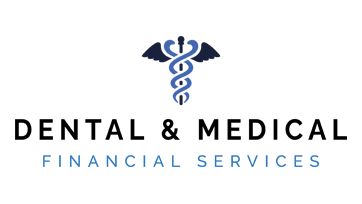
Tax Planning Tips You Need to Know
The new tax year has brought some changes in the tax system with reductions in national insurance contribution (NIC) rates. The employee NIC rate has been reduced to 8% while the self-employed rate dropped to 6%. An additional increase to the income threshold for liability to the high-income child benefit tax charge has also been introduced. Plus, state pensions have increased, offering some good news for beneficiaries.
________________________________________
Dental & Medical Financial Services have been assisting doctors with their financial planning for over 30 years. There are many strategies to help you take advantage of all available tax relief and avoid some tax penalties. Read on to learn more.
This does not constitute advice and advice should be sought in all instances before acting on it. The Financial Conduct Authority does not regulate tax advice.
________________________________________
But it’s not all good news. Personal tax allowances and income tax bands remain frozen, potentially increasing taxes due to inflation. And landlords are facing changes in tax advantages related to furnished holiday letting in 2025. So what can be done?
________________________________________
Tax planning tips
We’re proud to present a comprehensive guide complete with 50 tax planning tips to help you navigate the complex world of tax rules. Here is an overview of seven areas to pay close attention to during tax planning and top-level steps to take.
Personal and family planning
In personal and family planning, it is important to check your PAYE tax code and make any necessary amendments. Additionally, married couples should consider transferring unused personal allowance to optimise their tax situation. It is also crucial to review the level of National Insurance Contributions (NIC) you are paying and reclaim any overpayments. To top-up your state pension entitlement, consider paying voluntary class 3 NICs. After marriage or a civil partnership, it is advisable to nominate your main home for tax purposes.
Savings and investment
When it comes to savings and investment, contributing to your child’s Junior ISA and taking advantage of tax-free savings and dividend allowances is crucial. Investing in ISAs can help generate tax-free income and capital gains while considering a Venture Capital Trust (VCT) and Enterprise Investment Scheme (EIS) shares can provide additional tax benefits.
Property
In regards to your property, renting out rooms in your own home and utilising rent-a-room relief can be advantageous if you have the space. Planning your capital gains strategically to maximise available relief is also important. It is recommended that you evaluate the pros and cons of furnished holiday letting before 2025 and designate your main home for Capital Gains Tax (CGT) purposes.
Business
For your business, it is important to choose the most tax-advantageous structure and utilise the £1,000 trading allowance. If applicable, ensure you do not miss your VAT registration requirement and calculate your trading profit using the most appropriate bias. Involving your family can help lower your tax rate, and using your own car for business journeys can also provide tax benefits.
Retirement
When planning for retirement, maximising tax relief on pension contributions by utilising annual allowances is key. Using surplus allowances from previous years to boost the current year’s allowance is also beneficial. Pension contributions can help lower adjusted net income and retain child benefit, and planning to sell shares to your company on retirement can result in lower tax rates.
Estate planning
In estate planning, it is important to maximise inheritance tax (IHT) nil rate bands and residence nil rate bands. Creating a Will can help avoid intestacy rules and govern the distribution of assets, while leaving gifts to charity in your Will can reduce Inheritance Tax rates. Involving your spouse can also help save on IHT.
Employment and remuneration
In terms of employment and remuneration, providing free or subsidised food in a staff canteen and offering electric or low-emissions company cars can provide tax benefits. Assisting employees with small loans for unexpected bills and promoting clean commuting with electric charging points and free transport can also be beneficial. Providing health check-ups, eye tests, and mobile phones tax-free for employees can further enhance their benefits package.
Professional planning for best outcomes
For in-depth recommendations, download the Tax Planning Tips guide. By following these tax planning tips individuals and businesses can navigate the complex tax system more effectively and create tax-efficient plans.
For more information and detailed guidance, and to ensure your tax plan aligns with your overall financial planning, contact Dental & Medical Financial Services for expert advice and support.
Free Financial Guide – Tax Planning Tips

Dental & Medical Financial Services
Dental & Medical Financial Services have over 30 years of experience in building and protecting the wealth of medical professionals.
Our expertise covers:
- Financial Planning
- Mortgages & Finance
- Wealth Protection
- Investments, SIPPS & ISAs
- NHS Pension Planning
- Business Financial Protection
- Wills, IHT & Estate Planning
- Tax Planning
- Limited Company Investments
Contact Details
IFA Principal
Darren Scott-Guinness
01403 780 771
